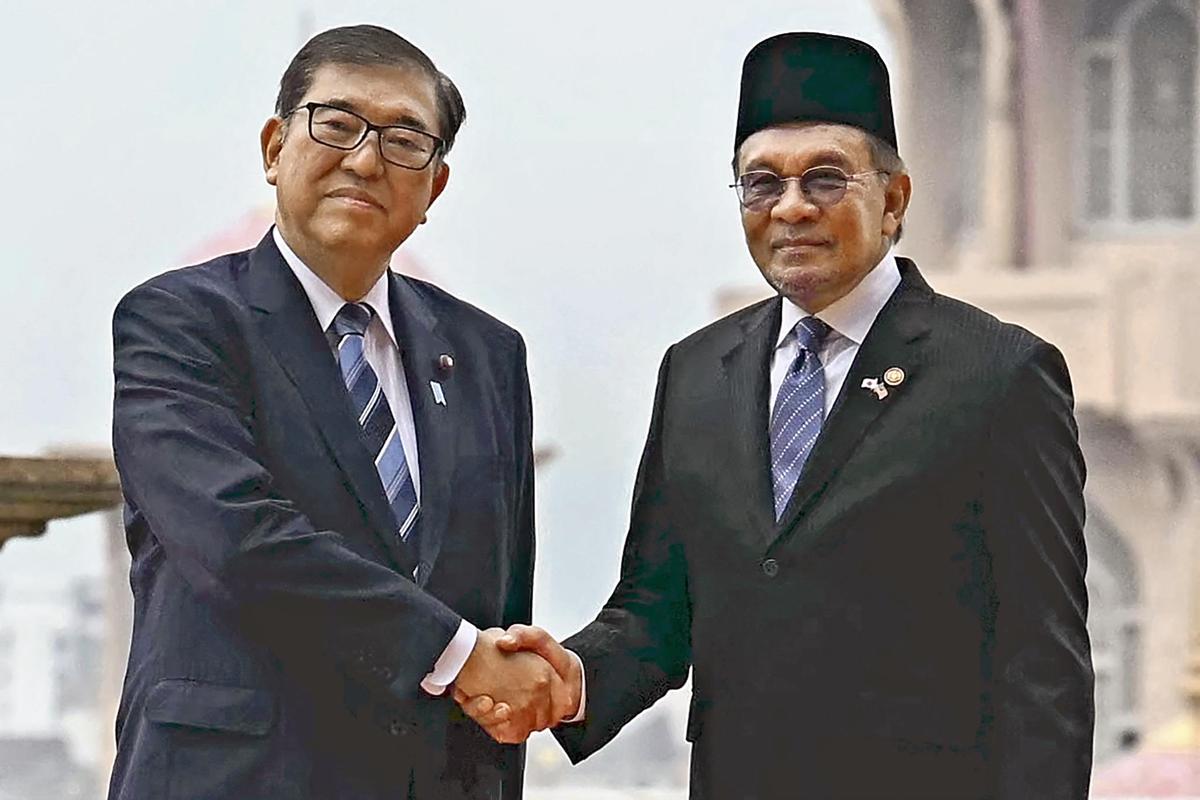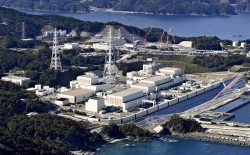Japan, Malaysia Agree to Boost Security Cooperation with China in Mind; Ishiba, Anwar Also Likely Agreed on Economic Cooperation

Prime Minister Shigeru Ishiba, left, and Malaysian Prime Minister Anwar Ibrahim shake hands before their meeting in Malaysia on Friday.
15:54 JST, January 10, 2025
PUTRAJAYA, Malaysia — Prime Minister Shigeru Ishiba and Malaysian Prime Minister Anwar Ibrahim agreed to strengthen security cooperation between the two countries, with China’s increasing maritime expansion in mind, at their meeting at the Malaysian Prime Minister’s Office on Friday morning.
The two leaders also to agreed on economic cooperation in such fields as energy supply and decarbonization.
Prior to the meeting, Ishiba and Anwar attended a welcome ceremony.
During the meeting, the prime ministers discussed regional situations, including the East and South China Seas, as well as the importance of a free and open international order based on the rule of law. In light of Malaysia chairing the Association of Southeast Asian Nations (ASEAN) this year, they also discussed further deepening ASEAN-Japan relations.
To strengthen security cooperation, Ishiba and Anwar agreed on the cooperation between their countries’ coast guards, as well as through the Official Security Assistance program, which provides free defense equipment to countries that share common values.
Measures to boost Malaysia’s sustainable economic development were also discussed. The measures included developing highly skilled personnel, decarbonization and disaster prevention. The Japanese side were expected to have called for a stable supply of liquefied natural gas.
Malaysia has been increasing its presence against a backdrop of economic growth and balanced diplomacy. Japan considers it a strategically important partner country.
Related Tags
Top Articles in Politics
-

Japan PM Takaichi’s Cabinet Resigns en Masse
-

Sanae Takaichi Elected 105th Prime Minister of Japan; Keeps All Cabinet Appointees from Previous Term
-

Japan’s Govt to Submit Road Map for Growth Strategy in March, PM Takaichi to Announce in Upcoming Policy Speech
-

LDP Wins Historic Landslide Victory
-

LDP Wins Landslide Victory, Secures Single-party Majority; Ruling Coalition with JIP Poised to Secure Over 300 seats (UPDATE 1)
JN ACCESS RANKING
-

Japan PM Takaichi’s Cabinet Resigns en Masse
-

Japan Institute to Use Domestic Commercial Optical Lattice Clock to Set Japan Standard Time
-

Israeli Ambassador to Japan Speaks about Japan’s Role in the Reconstruction of Gaza
-

Man Infected with Measles Reportedly Dined at Restaurant in Tokyo Station
-

Man Infected with Measles May Have Come in Contact with Many People in Tokyo, Went to Store, Restaurant Around When Symptoms Emerged


















